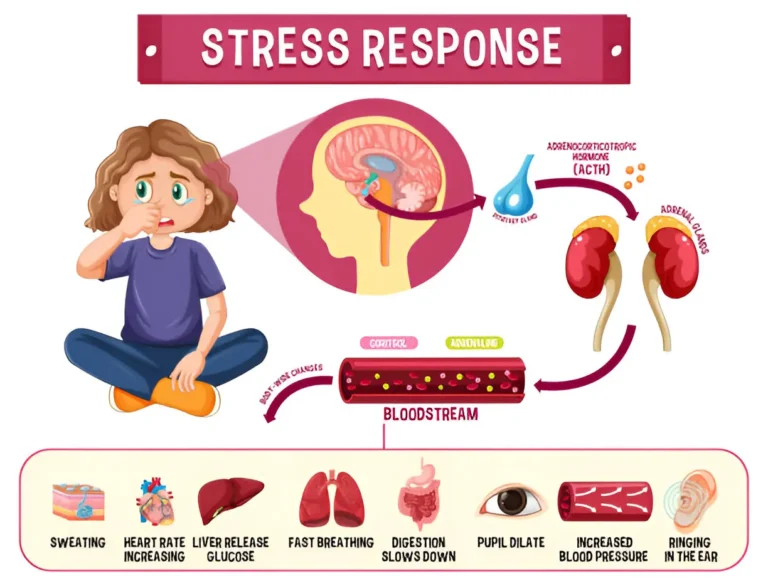Community Support Programs as Mental Health Ecosystems
In today’s fast-paced, hyperconnected world, mental health challenges are more prevalent than ever. Anxiety, depression, and social isolation affect millions, and while traditional clinical services remain critical, they are often not enough. Enter Community Support Programs (CSPs), which, beyond their usual social or economic objectives, are quietly evolving into holistic mental health ecosystems. These programs do more than provide aid—they create networks of support that nurture emotional wellbeing, resilience, and a sense of belonging.
Beyond Traditional Mental Health Services
Mental health support is commonly associated with therapy, counselling, or medication. While these are indispensable tools, they often reach only a fraction of those in need. Waiting lists can be long, accessibility may be limited, and stigma still prevents many from seeking help. A CSP, on the other hand, operate in everyday spaces: community centres, schools, libraries, and online platforms. They reduce barriers to participation, making mental health support more accessible, integrated, and continuous.
Unlike formal clinical interventions, CSPs often emphasise relationship-based support. Volunteers, peers, and local mentors become trusted figures who provide consistent human connection. These relationships foster a sense of security and trust, which is foundational for mental wellbeing. Social connection has been repeatedly linked to reduced stress, lower rates of depression, and increased life satisfaction. CSPs, by design, facilitate these connections organically.
Building Networks of Resilience
One of the most significant contributions of CSPs to mental health is the cultivation of resilience. Resilience is not simply an individual trait; it emerges from supportive networks and environments. CSPs provide that network, connecting participants to a broader community where resources, knowledge, and encouragement circulate freely.
Consider a local youth mentorship program. Beyond skill-building, participants gain a safe space to share worries, explore challenges, and celebrate successes. These interactions teach coping strategies, foster self-esteem, and reduce the sense of isolation that often accompanies mental health struggles. Similarly, programs supporting older adults, such as senior social clubs or community gardening projects, offer purpose, routine, and social interaction—all protective factors against depression and cognitive decline.
Emotional Literacy and Peer Support
CSPs also excel in promoting emotional literacy. Through group activities, workshops, and shared experiences, participants learn to recognise, articulate, and manage their emotions. This is especially vital for populations that may not have had access to formal mental health education. By embedding emotional skills in everyday activities, CSPs help normalize conversations around feelings and mental health, gradually reducing stigma.
Peer support is another cornerstone of CSP-driven mental health ecosystems. Peer-led initiatives—where individuals with lived experience guide or mentor others—have shown remarkable effectiveness in building empathy, validation, and hope. Participants feel understood by someone who has navigated similar challenges, creating a sense of solidarity that is difficult to replicate in formal therapy alone.
The Role of Volunteering and Participation
Participation in CSPs is mutually beneficial. For volunteers, engagement often leads to enhanced wellbeing, purpose, and social integration. Research indicates that volunteering can reduce stress, combat depression, and even improve longevity. For recipients, involvement fosters agency and empowerment, shifting them from passive recipients to active contributors. This reciprocal dynamic strengthens the mental health ecosystem, creating a self-sustaining cycle of support.
CSPs also encourage micro-communities—smaller, interest-based clusters that provide more intimate support networks. Whether it’s a local art circle, a running group, or a book club, these micro-communities offer belonging, routine, and shared identity, all of which are protective factors for mental health. They also act as early-warning systems: participants can notice changes in behaviour or wellbeing among peers and respond informally, often before formal interventions are needed.
Integration with Professional Services
While CSPs are powerful, they are most effective when integrated with formal mental health services. Forward-thinking programs maintain partnerships with counsellors, psychologists, social workers, and public health institutions. These partnerships ensure that participants receive professional support when necessary while remaining engaged in the community-based ecosystem.
For instance, a CSP for trauma-affected youth may run art workshops and peer mentorship while providing access to licensed therapists for those requiring intensive care. Such hybrid models respect the continuum of mental health care, from prevention and early intervention to specialized treatment.
Addressing Mental Health Stigma
CSPs play a crucial role in combating stigma around mental health. By embedding mental health support into everyday community activities, they normalize conversations and reduce the perception that help is only for those with severe conditions. Community events, awareness campaigns, and inclusive programming help create environments where seeking support is seen as a natural and valued part of life.
Moreover, seeing peers and neighbours actively participating in CSPs sends a powerful signal: mental health matters, and everyone can contribute. This cultural shift is vital for creating communities where wellbeing is prioritised collectively rather than being siloed as an individual responsibility.
Measuring Impact and Sustainability
Understanding the impact of CSPs on mental health is a growing field of study. Metrics often include social connectedness, self-reported wellbeing, reduced anxiety or depression symptoms, and engagement rates. Digital tools, surveys, and participatory evaluation methods allow CSPs to track progress while remaining community-driven.
Sustainability, however, is a constant challenge. Programs rely on funding, volunteer commitment, and community buy-in. Long-term success often hinges on creating flexible models that can evolve with community needs, secure diverse funding streams, and build local leadership to maintain momentum.
The Future of CSPs as Mental Health Ecosystems
The potential of CSPs as mental health ecosystems is immense. Technology, including mobile apps, online peer support, and tele-mentoring, can expand reach without losing the relational focus that makes these programs effective. Communities are increasingly recognizing the interconnectedness of social, economic, and emotional wellbeing, and CSPs are ideally positioned to address all three simultaneously.
By viewing CSPs through the lens of mental health ecosystems, stakeholders—governments, funders, and community leaders—can design programs that are preventative, participatory, and deeply human. These ecosystems offer more than aid; they provide resilience, connection, and hope. In a world where mental health challenges are widespread and resources limited, CSPs remind us that sometimes the most profound interventions are also the most community-centered.
Community Support Programs are no longer just a patchwork of social services—they are dynamic, evolving ecosystems that nurture mental health. Through connection, participation, peer support, and integration with professional services, CSPs address emotional wellbeing holistically. They build resilience, reduce isolation, and combat stigma, proving that mental health thrives best when supported by the collective strength of a community.
In the end, these programs illustrate a simple yet powerful truth: wellbeing is not only an individual pursuit; it is a shared, communal endeavor. By investing in CSPs as mental health ecosystems, communities invest in the mental and emotional health of all their members, fostering stronger, more resilient societies for generations to come.
Read more: The Wellness Mirage: How Companies Confuse Perks with Care » Dunkin Donuts
The 2AM Mindset: Why Nighttime Anxiety is a Workplace Issue » Dunkin Donuts
Smart Strategies for Growing B2B Businesses Online With SEO » Dunkin Donuts






